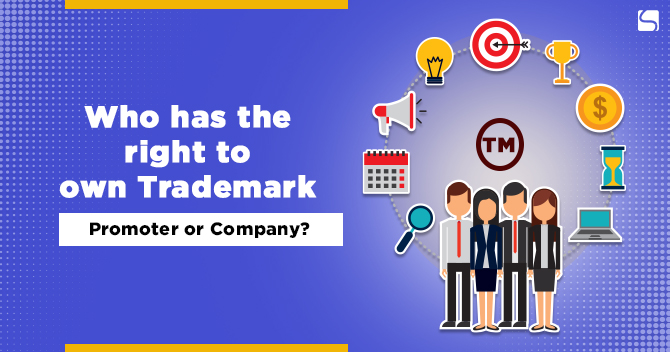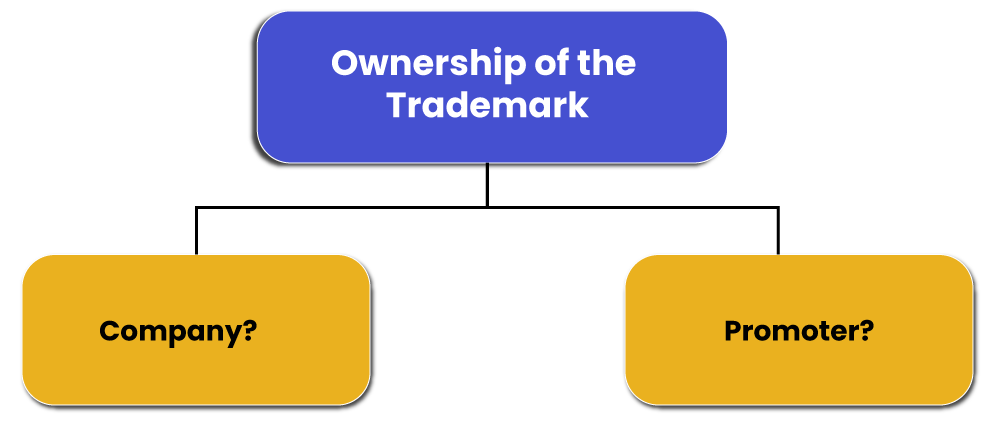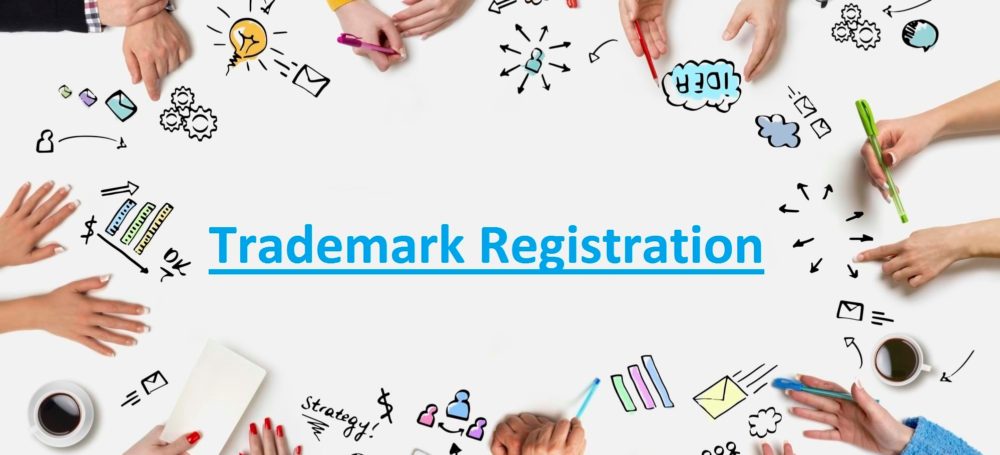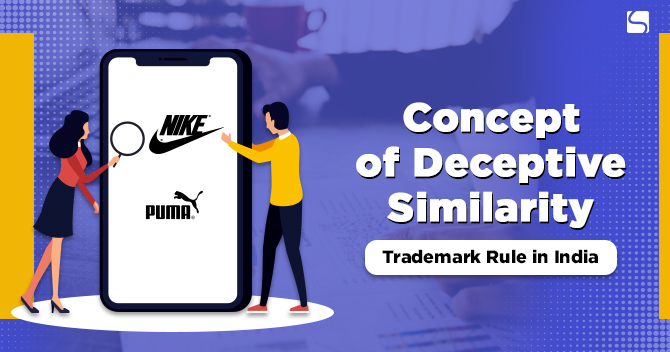Who has the right to own Trademark: Promoter or Company?

Mudit Handa | Updated: Nov 27, 2020 | Category: Trademark
Table of Contents
Significance of Trademark in today’s era
In today’s era of aggressive competition among the corporates, a Trademark registration is an indispensable necessity for a business entity rather than just being a perk. In fact, to apply for a trademark online is a sure-shot solution against all unwanted trade disputes or conflicts that may rise between two or more business competitors due to trademark infringement.
It is today a universal truth that a unique and original Brand logo is the most precious intellectual property for any business. Businesses manage to grab the attention of their targeted clients swiftly through their Brand logo, which distinguishes their product or service from that of other competitors of the similar product line.
With the passage of time, the business has become mazy like never before. Today we are living in the age of Globalization, where the market competition gets tougher with the business expansion.
Many budding entrepreneurs in the market face tough competition from the well-established brands while establishing their client base.
Here trademark plays a pivotal role of a strong marketing tool to establish and expand business clientele. Since the registered trademark provides a legal shield to protect the brand name from its misuse or replication, it provides a basis of all pecuniary benefits of a business. So, it is worth knowing who shall own a registered trademark.
Question of Ownership of the Proposed Trademark
Indeed, the Trademark Registration is one of the most precious assets, i.e., intellectual property for a business entity. It takes considerable time to earn and grow the business brand name. Since a trademark serves as a basis of all the pecuniary benefits of a business, the major concern during filing of the trademark application is regarding the name of the applicant who shall claim the actual ownership of the applied trademark.
The obvious question that arises is- “Who shall be attributed to the ownership of the proposed trademark?”
When does the question of ownership arise?
The question of ownership rights over the proposed trademark arises only when there is more than one person who are interested to develop brand equity. Often when there are integrated efforts behind the building of a brand name. This may result in conflicts over the ownership and credit for monetary gains arising from a trademark.
Hence, we will discuss in detail whether it is the company or its promoter who shall be attributed the ownership over the proposed trademark.
Ownership of the Trademark: Company or Promoter?

As per the law, there is no single entity who has the sole right over a proposed trademark.
There are 2 separate cases under which ownership of a trademark can be applied for:
- Either the company can apply for a trademark online as the actual owner of the proposed trademark; or
- The promoter (individual) can himself apply for a trademark online entering his name as the actual owner of the proposed trademark.
Here, it’s important to note that the issue of ownership over the proposed trademark is purely a matter of mutual understanding among the promoters and the board of directors the company.
However, the real question that arises is related to the legal implications that can arise in both the cases, after the trademark application has been filed.
Hence, we must first understand the legal status of the company and its promoter as per the Companies Act[1].
The legal status of the company and its promoter
As per the Companies Act 2013, a Private Limited Company or a Limited Liability Partnership (LLP) is considered as a separate legal entity in the terms of the law.
- Since a company or LLP enjoys separate legal status from its promoters, it can also claim the ownership of its assets in its own name.
- There shall be no interference of the company’s ownership rights by its promoters.
- Nonetheless, the promoters tend to assert their highest interest for growing the brand name of the company or the LLP so concerned.
- The company may, upon the mutual agreement with the promoters, choose to transfer the ownership of some of its assets to the promoters. This may include IPR and trademark as well.
What if the Promoter becomes Owner of the Trademark?
In case the promoter is given the ownership over the proposed trademark, here are the legal implications involved:
- The promoter whose name is filed as the applicant shall have the legal identity i.e. The nature of the business existence or arising out of the law.
- The name of this promoter as an applicant shall be published on the trademark registry portal.
- In case the proposed trademark is already owned by a 3rd party or the promoter of the company, then the company will not be able to claim its ownership. In such a case, the company can’t consider the trademark as its assets. As a result, it won’t be able to claim the pecuniary benefits of the brand name so built. Hence, it is important to settle the ownership status well in advance.
- The ownership of the trademark can only be validated through an agreement between the company and the promoter, allowing the promoter/company to claim trademark ownership.
- During the assignment or the sale of the trademark, if the trademark is owned by the promoter, an agreement has to be modified by adding the new 3rd party. Otherwise, a new agreement has to be drafted.
- Important: If a 3rd party or promoter is owning the trademark, he alone shall be held liable for all the legal implications with regard to the trademark application and its procedure. For all further procedures like trademark objection or opposition, the 3rd party or promoter shall be responsible for the legal proceedings.
Conclusion:
To conclude we must say that the issue of ownership of the proposed trademark is entirely the matter of mutual agreement between the company and its promoters. Whosoever wishes to apply for a trademark online as the owner of the proposed trademark, shall be held accountable for all legal matters pertaining to the Brand Name, trademark objection or opposition or TM formality check.
Anyone who claims trademark ownership will get automatically accountability for the risk of intellectual property.
Also, Read: Rectification of Trademark in India: Its Concept and Procedure for Filing














